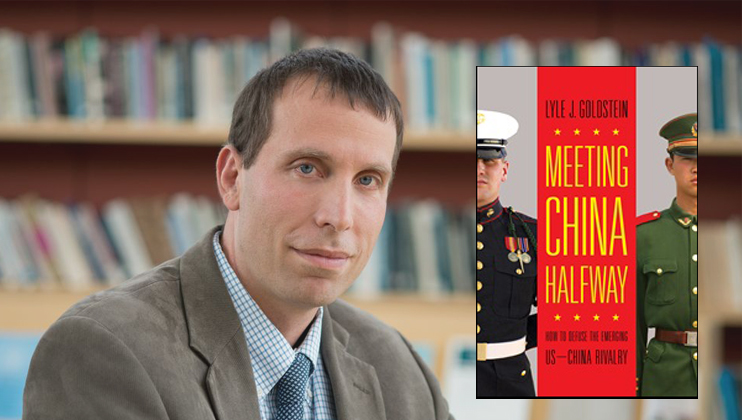Thursday, June 25, 2015 | 5:30 PM EDT - 7:00 PM EDT
National Committee on U.S.-China Relations |, New York, NY
Although a Sino-U.S. conflict is far from inevitable, tensions are building in the Asia-Pacific region, the result of historical enmity, cultural divergence, and deep ideological estrangement, as well as apprehensions propelled by geopolitical competition and the closely related “security dilemma.” Despite worrying signs of intensifying rivalry between Washington and Beijing, few observers have offered paths away from disaster. In Meeting China Halfway: How to Defuse the Emerging US-China Rivalry Lyle J. Goldstein focuses on American and Chinese perceptions of where their interests clash and proposes ways to ease bilateral tensions through compromise. Each chapter contains a “cooperation spiral”—the opposite of an escalation spiral—to illustrate his policy proposals. Dr. Goldstein makes numerous policy proposals over the course of the book, hoping to stimulate a genuine debate about cooperative policy solutions to the most challenging problems in U.S.-China relations.

Lyle J. Goldstein
Lyle J. Goldstein is an associate professor in the China Maritime Studies Institute (CMSI), which was established at U.S. Naval War College in October 2006 to improve mutual understanding and maritime cooperation with China. He served as the founding director of CMSI from 2006 to 2011. For this service, he was awarded the Superior Civilian Service Medal in 2012.
Proficient in Chinese and Russian, Professor Goldstein has conducted extensive field research in both China and Russia. His research on Chinese security policy, especially concerning maritime development, has been published in China Quarterly, International Security, IISS Survival, Marine Policy, Contemporary Southeast Asia, Journal of Strategic Studies, and U.S. Naval Institute Proceedings. Professor Goldstein’s first book, which compared proliferation crises and focused particularly on Chinese nuclear strategy, was published by Stanford University Press in 2005. He is the co-editor of several books: China’s Future Nuclear Submarine Force (2007); China’s Energy Strategy: The Impact on Beijing’s Maritime Policies (2008); China Goes to Sea: Maritime Transformation in a Comparative Historical Context (2009); China, the US and 21st Century Sea Power: Defining a Maritime Partnership (2010); and Chinese Aerospace Power: Evolving Maritime Roles (2011). Recently his research has focused on various quandaries in U.S.-China relations, including the imperative to enhance maritime cooperation.
Dr. Goldstein earned a Ph.D. from Princeton University in 2001; he has an M.A. from Johns Hopkins School of Advanced International Studies, and a B.A. from Harvard.
